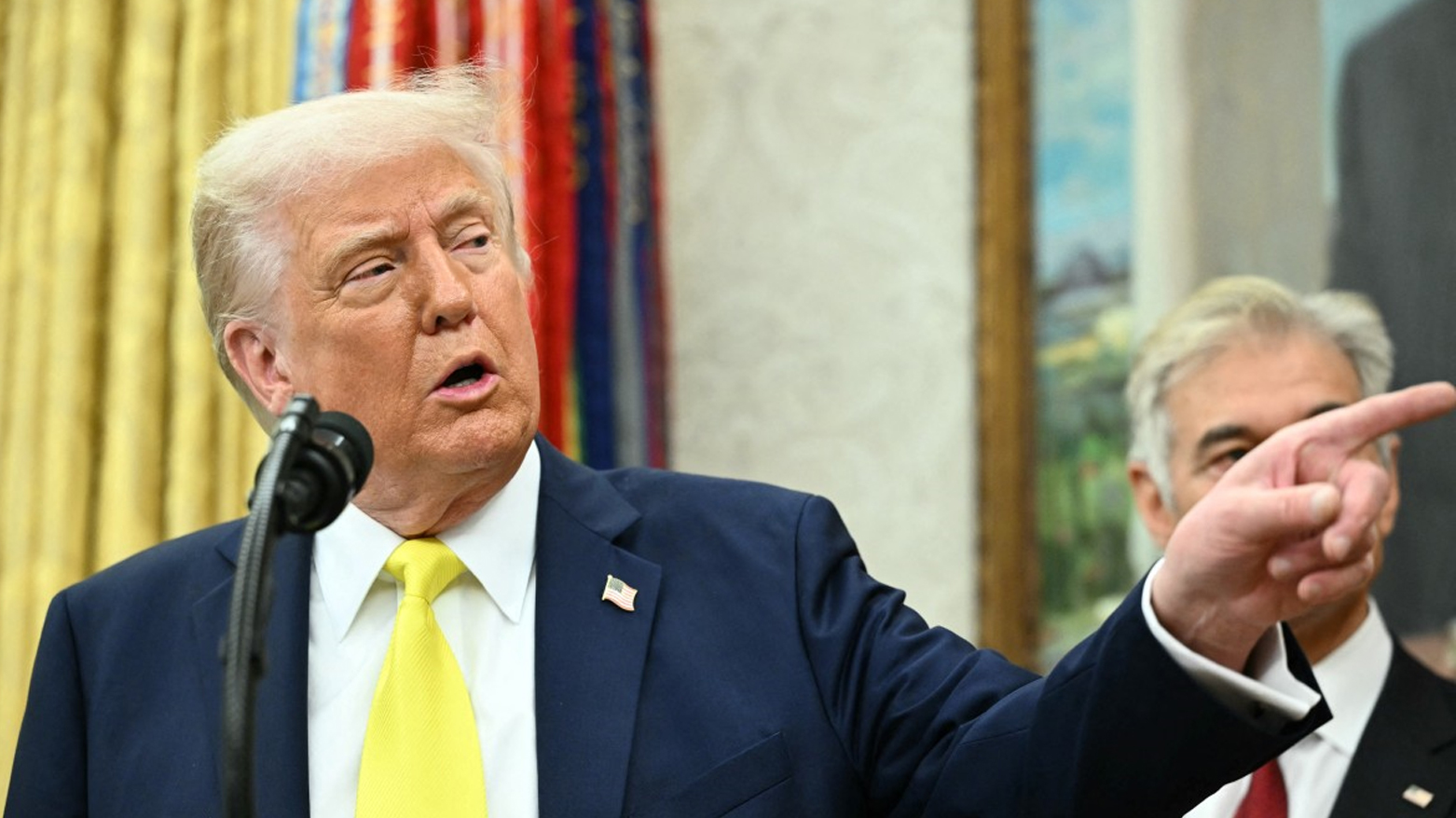Trump Warns Iran: A Nuclear Iran Will Never Bring Happiness to Its People
Trump’s comments on Iran coincided with a critical second round of indirect U.S.-Iran nuclear negotiations taking place in Rome.

By Ahora Qadi
ERBIL (Kurdistan24) – U.S. President Donald Trump on Friday declared that a nuclear-armed Iran would only invite perpetual peril for its own population, reiterating Washington’s uncompromising stance on Tehran’s atomic program amid ongoing indirect talks in Rome.
Speaking at the White House on Friday, Trump stated, “If Iran becomes a nuclear power, it will not bring happiness to its people. It will only mean that they must live forever under threat.” His remarks came during a broader press briefing where he addressed key international concerns, including the war in Ukraine, U.S.-Russia relations, and China’s strategic positioning.
On Ukraine and Russia: “We Still Have a Chance at Peace”
President Trump expressed cautious optimism regarding the possibility of reaching a resolution in the Ukraine conflict. “We don’t have a fixed timeline for disengagement,” he said in reference to U.S. involvement in Ukraine, “but if any party creates obstacles, we’ll have to reconsider our options. I just hope we won’t be forced into that position.”
He also voiced hope that Russia was not intentionally undermining peace efforts, noting, “We’ll find out very soon.”
A Nuclear Deal with Iran? Talks Continue as Doubts Persist
Trump’s comments on Iran coincided with a critical second round of indirect U.S.-Iran nuclear negotiations taking place in Rome. The talks follow an initial session in Muscat, Oman on April 12, where Iran’s Foreign Minister Abbas Araghchi and U.S. Special Envoy Steve Whitkopf led their respective delegations.
In parallel, Araghchi appeared in Moscow alongside Russian Foreign Minister Sergey Lavrov on the same day Trump delivered his remarks. Araghchi maintained Iran’s formal commitment to peaceful nuclear objectives but reiterated doubts over U.S. intentions. “We suspect the U.S. has its own agenda,” he said, “but we are still participating in these talks in good faith.”
Araghchi emphasized that Iran remains open to an agreement, provided Washington refrains from “unjust and unrealistic demands.” Lavrov also voiced Russia’s readiness to mediate, stating, “Moscow is prepared to take on any role that Iran finds constructive and the U.S. agrees to.”
Lavrov warned that any party introducing unrelated issues or pushing for a rigid deal could derail progress and lead to “an unpredictable and dangerous outcome.”
U.S.-UK Cooperation and Regional Concerns
Earlier that same day, the British Prime Minister’s Office released a statement confirming a phone conversation between President Trump and UK Prime Minister Keir Starmer. The two leaders reportedly discussed the situations in Ukraine, Iran, and recent American responses to Houthi attacks.
They also touched on bilateral trade and customs relations, with Starmer reaffirming his commitment to “free and open trade” between the two allies while vowing to protect Britain’s national interests.
China Relations: “Moving in the Right Direction”
Addressing U.S.-China dynamics, Trump signaled a thaw in relations. “We've had some very good interactions with China recently, and I think things will only improve from here,” he said, suggesting that prior tensions might be giving way to more constructive dialogue.
An Uncertain Path Forward
The backdrop to these developments is a region riddled with distrust and competing interests. As nuclear diplomacy enters a fragile phase, the Biden administration’s earlier efforts remain under review by the Trump team. According to Iranian sources, Araghchi is scheduled to continue meetings in Rome to evaluate Washington’s position further.
While Iran insists its program is peaceful, uranium enrichment at levels inconsistent with civilian use has deepened international skepticism. With the Trump administration yet to articulate a full roadmap for dealing with Tehran, the outcome of these talks remains uncertain.
Nonetheless, both sides appear engaged—albeit cautiously. “This is a good start,” Barbara Leaf, former U.S. Assistant Secretary of State, recently told Kurdistan24. “But the road ahead is long and difficult.”